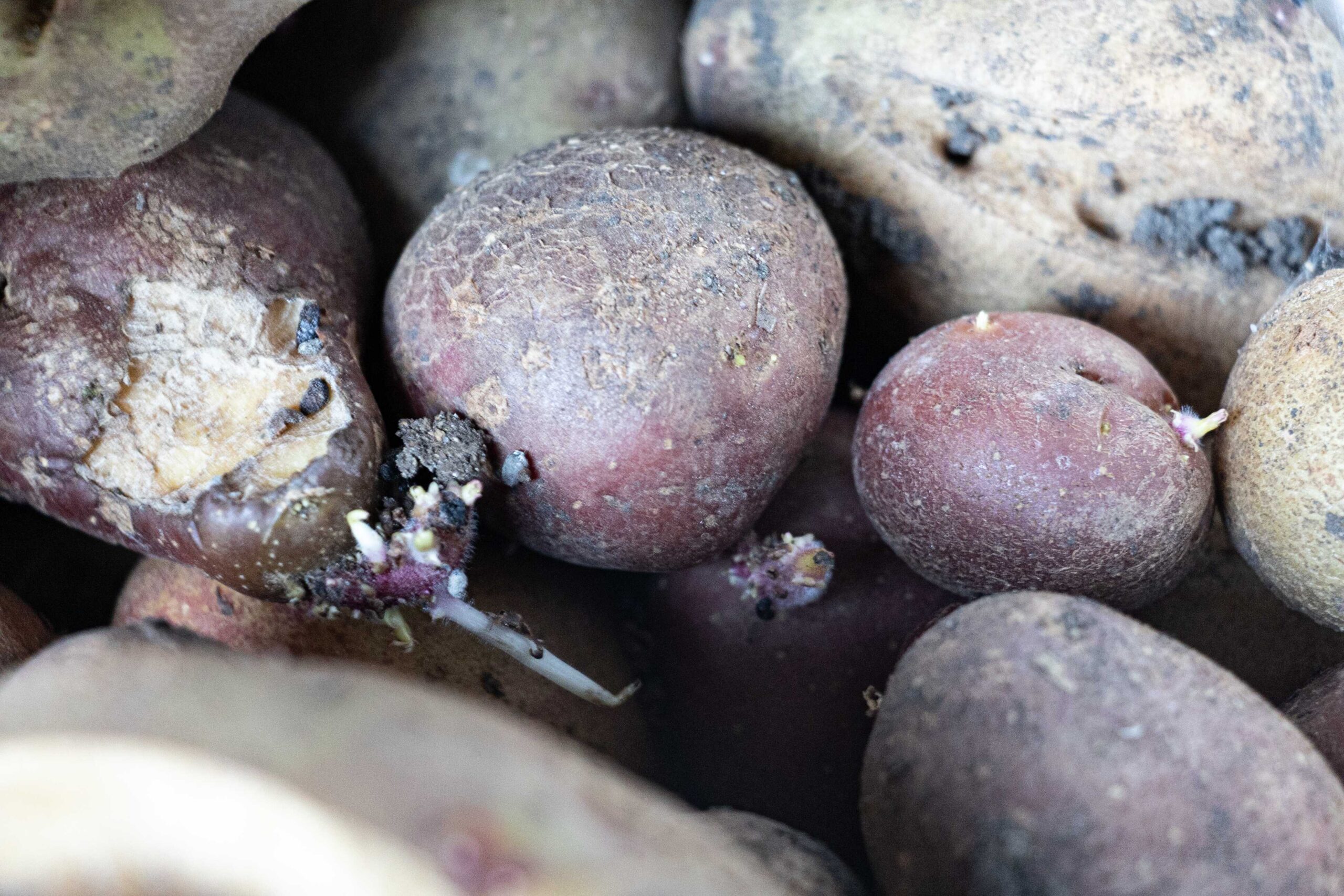Hong Kong farmer, Yu-Wing Wong, tells Nettle how he overcame climate and soil differences, to promote home gardening and organic farming through seed sales and gardening classes
“Work from dawn to dusk,” is an ancient Chinese proverb that describes the routine of farmers who live by nature’s cycles. Yu-WingWong, 56, is a Hong Kong farmer and founder of AuLaw Organic Farm UK CIC who relocated to New Malden in SW London four years ago with his family.
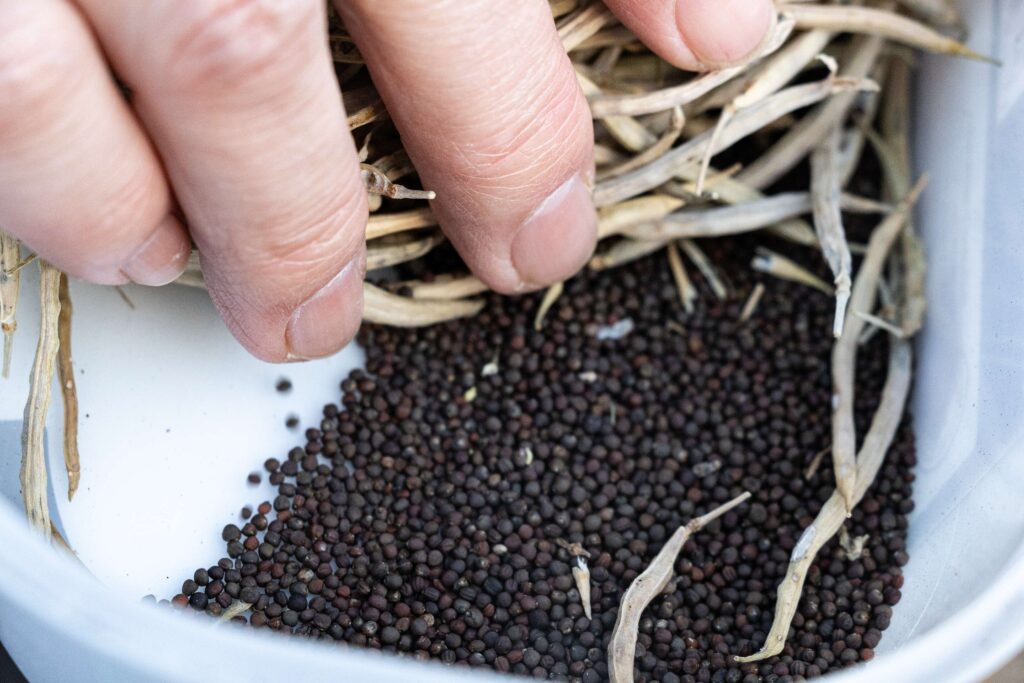
Image | taken by Cheryl Ng
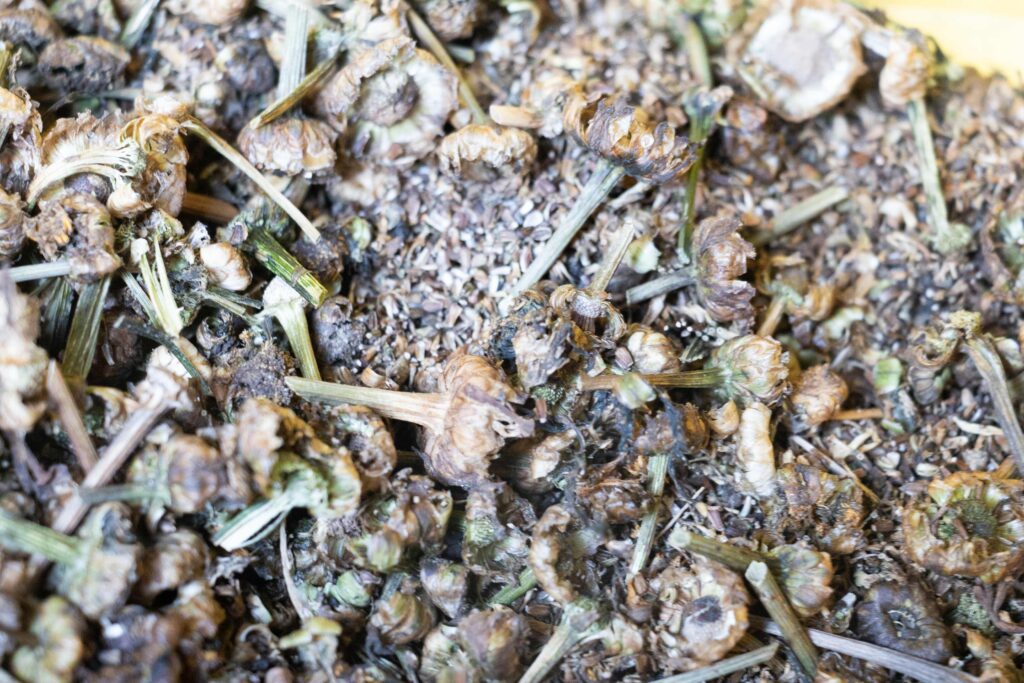
Image | taken by Cheryl Ng
Like most farmers, Yu Wing’s life is centred on his farm. A typical day will see him fertilising his crops, such as lettuce and rhubarb, with manure; watering to ensure the vegetables are growing in the right conditions; weeding and protecting the crops to ensure they are not damaged by insects.
But on top of his farming duties Yu Wing, also provides a wide range of services, such as garden-farm conversion advice, which helps people convert their back gardens to farming beds. He also offers skills workshops on his farm and at other community gardens, to teach people who don’t have experience in farming to farm, and he offers field trips to co-farming space to introduce seasonal growth crops and how it can be sold in the local farm market.
Yu-Wing explains that gardening is a seasonal job and that he usually works in the spring, summer, and fall. “In these seasons, I will look at the crops in the morning, and then do some irrigating, and fertilising, depending on the conditions of the crops,” he says.
Yu-Wing normally spends most of his day on his farm, it located 10 minutes’ walk from the train station of New Malden, the middle of Cambridge Ave, you can find a gate with the name “Alric Avenue Allotment,” there are more than 150 little allotments, co-farmed by local residents. He is manging four phrases of the allotments, planting crops and keeping bees, turning it to his little farm.
“Some local people ask me: ‘Why are you always here staring at the crops?’ I always tell them I am looking after the crops,” he says, explaining that the locals’ questions stem from the contrasts in agricultural approaches between the UK and Hong Kong.
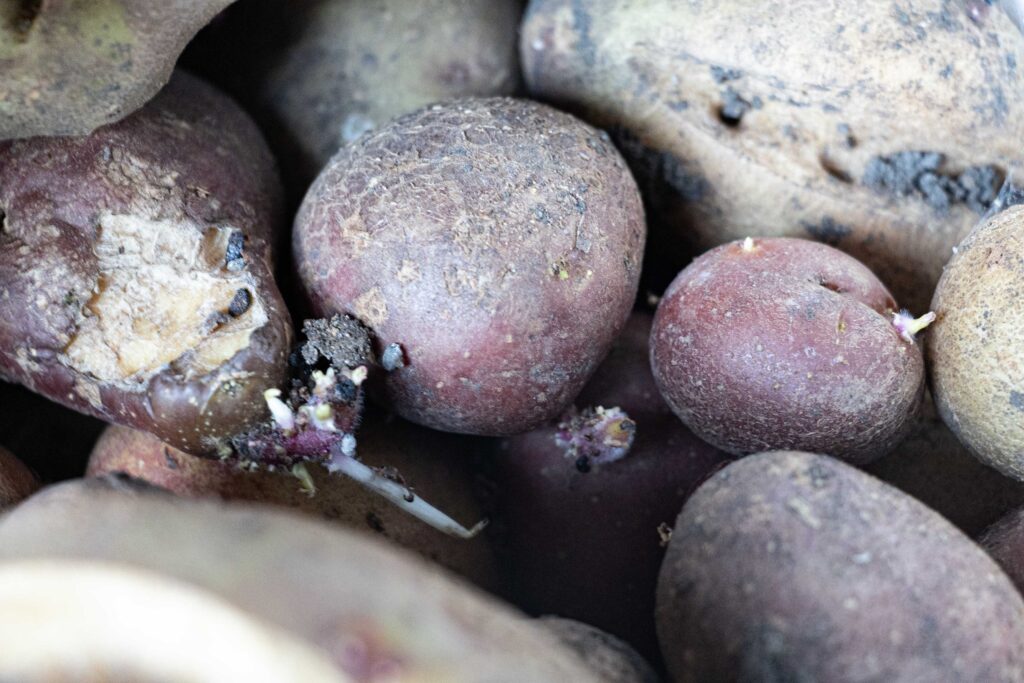
Image | taken by Cheryl Ng
“A lot of farmers in the UK might not have a regular timetable for watering or [spreading] manure,” says Yu-Wing. “In Asia, we do precision agriculture.” Precision agriculture is an approach to farming that uses technology and data to perfect various aspects of the agricultural process. The goal is to increase the efficiency, productivity, and sustainability of agricultural practices while minimizing waste and environmental impact.
Aside from the peak season, March to October, only a limited number of crop species can be cultivated in the winter due to the freezing weather. As a result, Yu-Wing spends much of his time with his family, his wife and two young adult sons, during this season, but he also makes use of greenhouse and tries to improve crop varieties, such as garlic-chive and watercress, by adjusting their living habit such as cold resistance, to find the best methods to grow Hong Kong veggies in the UK, aiming to serve the needs of Hong Kong diaspora community and promote the concept of “garden to table,” to encourage people to plant and eat the vegetables they’ve grown.
Yu-Wing comes from a farming family, he grew up with plants and worked in the commercial industry after he graduated from college and became a farmer in 2010 when he was in his forties. He worked as a farmer in Hong Kong for more than ten years, managing a large-scale organic farm with 200,000 sq ft., concentrating on establishing a co-selling, co-farming, and co-building culture within the agriculture industry in Hong Kong.
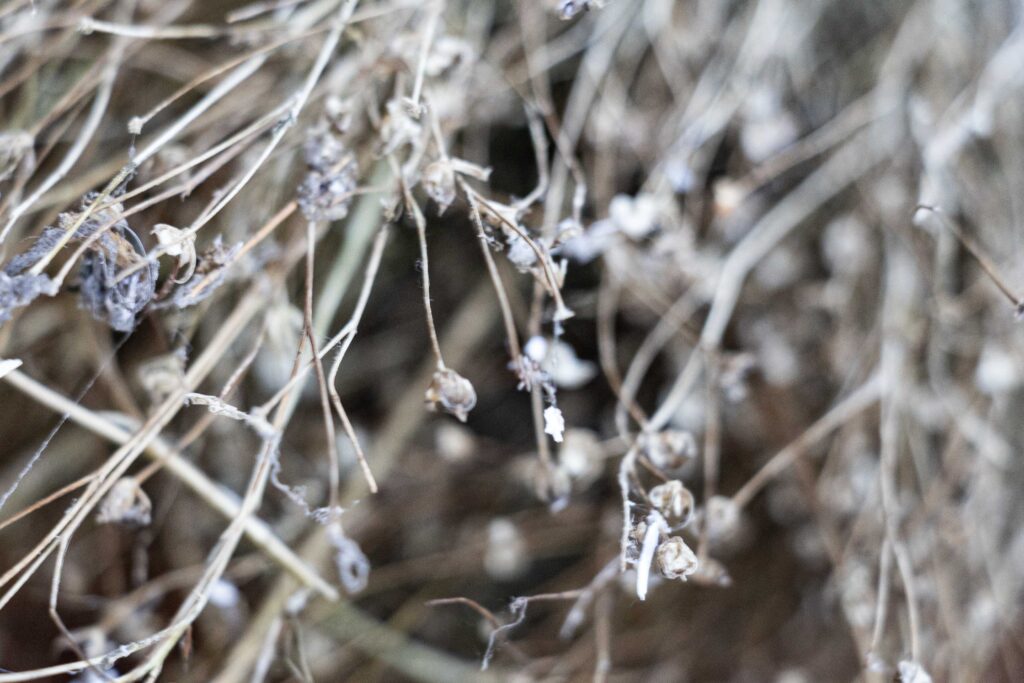
Image | taken by Cheryl Ng
He had no idea that he would return to farming when he initially arrived in the UK as he decided to relocate very rush in 2020, due to the political situation in Hong Kong becoming serious, and the UK government launched a scheme named LOTR (Obtaining Leave Outside of the Immigration Rules) for the BNO (British National (Overseas)) passport holder, allow Hong Kong people to relocate to the UK. “To be honest, I hadn’t thought about myself before I took the flight, the reason I decided to relocate to the UK, even London, is only because of my family, especially my sons,” Yu-Wing says. He explained the decision was made by his wife and aimed to provide a better education environment and freedom to their sons.
However, after a short time of his relocation, he saw that far too many immigrants from Hong Kong to the UK had trouble finding the vegetables they often ate at home, such as Pak-choi, Gai-lan, Choi-sum, and watercress, and some people told him they missed the flavours of home. “Most people in Hong Kong don’t often plant by themselves because they think farming is very difficult.,” he says, explaining this was behind his decision to go back to agriculture.
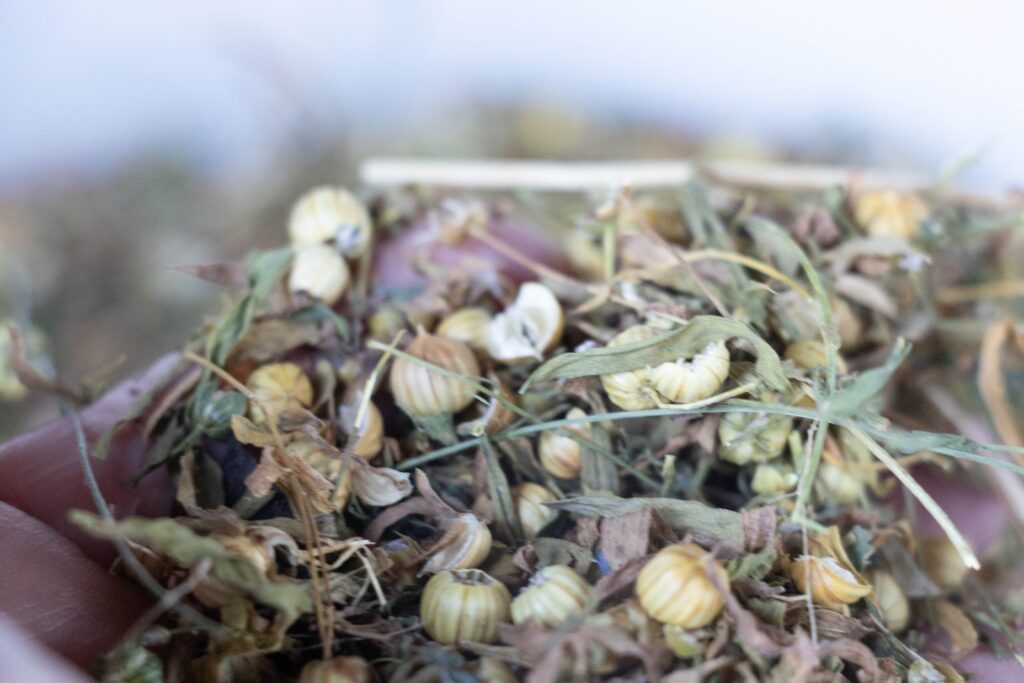
Image | taken by Cheryl Ng
He started in his back garden, and then luckily, he got the chance to rent a phrase from “Alric Avenue Allotment.” “It usually takes five years to get a phrase [of farmland] to rent, as there are many people on the waiting list,” Yu-Wing says, “but the lucky thing is, as I am a professional farmer, I am able to deal with the land that no one can handle.” He explains that the first phrase he rented from the allotment was at its outermost edge; it was deserted, overgrown with trash, and abandoned by everyone. So, he approached the district clerk and asked if he could cultivate it. After obtaining permission, he spent a month cleaning rubbish, weeding, and placing a new layer of soil on top of the land and converting it to a usable farmland and began his new farmer live.
Apart from being a product provider, Yu-Wing wants to go further. As he mentioned, when he first appeared in the local farm market, he was the only farmer who sold crops. “Most of the sellers in the market are selling handcraft products, sweets, or food, I was the only one who sells crops and seedlings [such as choi-sum, pak-choi, and Indian lettuce] in the farm market as a farmer,” he said. Now, some local people call him a farmer and ask his advice about farming.
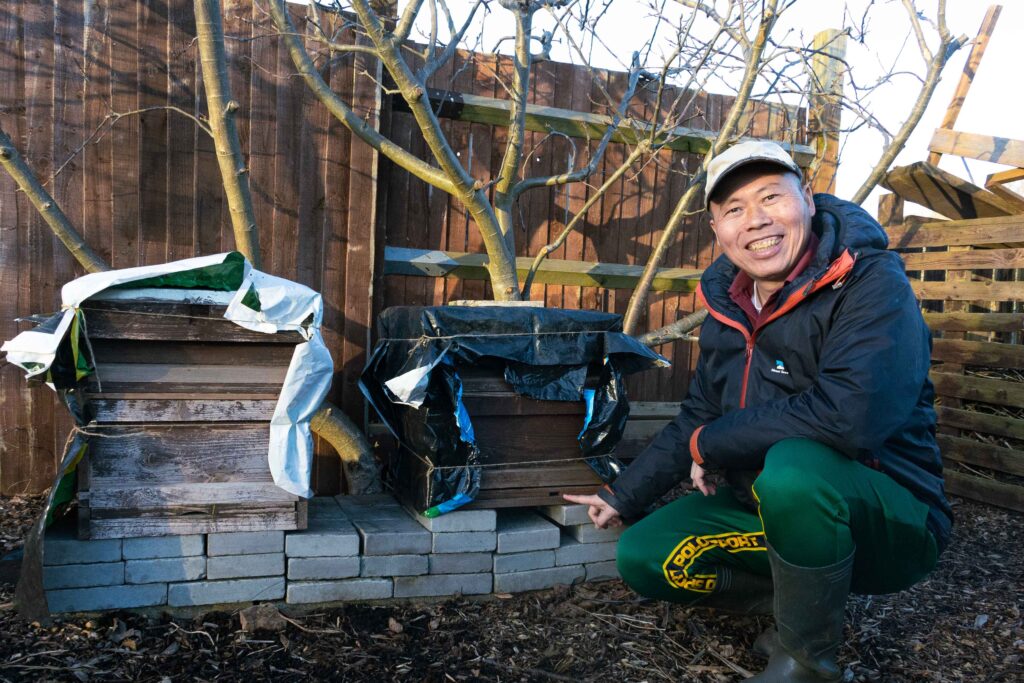
Image | taken by Cheryl Ng
“Most of the people in the UK, even London [can] access green space and are able to plant something at home,” says Yu-Wing. this inspired him to sells seedlings instead of crops at the market and conduct different workshops to teach people how to plant. “I want to encourage people to make use of their own green space and plant by themselves, it is more sustainable compared to buying everything from the market,” he adds.
Box
Gardening tips for beginners
1. Pick the Perfect Spot:
Decide on a section of your outdoor space that has sufficient water flow and sees at least six hours of sunshine every day. Consider closeness to watery supplies and wind resistance.
- Prepare the soil:
Make sure your soil is nutritious. Add organic matter, such as composted or well-rotted manure, to increase the soil’s quality. The foundation for good plant development is established by properly preparing the soil before planting.
- Select the Right Vegetables:
Choose veggies that are fit for your climate and particular conditions. Consider temperature, sunlight demands, and the duration of the growth season. Tomatoes, lettuce, carrots, and radishes are all good starter crops.
- Maintenance and Planting:
For spacing and planting depth, refer to the directions on the seed packet or plant label. Water your garden regularly, but avoid overwatering. Check for diseases and insects frequently, and deal with problems as soon as possible. Consider adopting organic pest control when feasible.
Questions:
Have you ever planted by yourself?
What do you think about urban farming?
*The interview is conducted in Cantonese and translated by the writer accordingly.
